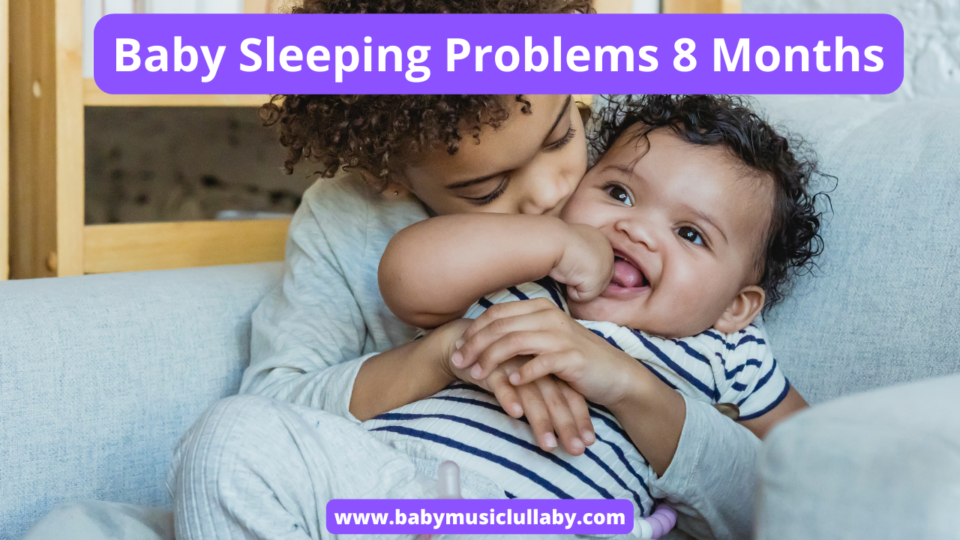Contents
Introduction
As parents, we all want our babies to sleep peacefully through the night. However, it’s not uncommon for babies to experience sleeping problems at different stages of their development. At around 8 months, some babies may encounter challenges when it comes to sleep. In this article, we will explore the common sleeping problems faced by babies at 8 months, discuss possible causes, and provide practical solutions to help you address these issues and improve your baby’s sleep quality.
Understanding Baby Sleeping Problems at 8 Months
At 8 months, babies are going through various developmental milestones, including increased mobility, cognitive development, and separation anxiety. These changes can disrupt their sleep patterns and lead to sleeping problems. It’s important to understand the common issues that babies may face during this stage to effectively address them.
Common Sleeping Problems
Here are some common sleeping problems that babies may experience at 8 months:
- Difficulty Falling Asleep: Your baby may have trouble falling asleep independently and rely on specific sleep associations, such as rocking or feeding, to doze off.
- Frequent Night Wakings: Babies at 8 months may wake up more frequently during the night, leading to interrupted sleep for both the baby and parents.
- Short Naps: Naps may become shorter and less consistent, causing your baby to become overtired and fussy.
- Restlessness: Increased mobility and cognitive development can make babies more restless during sleep, leading to frequent shifting, rolling, or even standing in the crib.
Causes of Sleeping Problems at 8 Months
Several factors can contribute to sleeping problems at 8 months:
- Separation Anxiety: At this stage, babies become more aware of their surroundings and develop stronger attachments to their caregivers. Separation anxiety can cause them to become unsettled when separated, making it difficult for them to sleep.
- Cognitive Development: The rapid cognitive development happening around 8 months can lead to increased alertness, curiosity, and difficulty switching off their active minds when it’s time to sleep.
- Teething: Teething can cause discomfort and pain, which can interfere with your baby’s sleep. The emergence of new teeth can disrupt their sleep patterns and cause nighttime wake-ups.
Solutions for Baby Sleeping Problems
Fortunately, there are strategies you can implement to help your baby overcome sleeping problems at 8 months:
- Establish a Bedtime Routine: Create a consistent bedtime routine that signals to your baby that it’s time to wind down and prepare for sleep. Include activities such as a warm bath, quiet playtime, and reading a bedtime story.
- Encourage Independent Sleep Skills: Teach your baby to fall asleep independently by placing them in the crib when drowsy but still awake. This will help them learn to self-soothe and fall back asleep during the night.
- Create a Calm Sleep Environment: Ensure your baby’s sleep environment is conducive to sleep. Keep the room dark, maintain a comfortable temperature, and use white noise or soft music to drown out any disruptive sounds.
- Address Separation Anxiety: Ease separation anxiety by gradually introducing independent playtime and gradually increasing the time spent away from your baby. This will help them feel more secure and confident when falling asleep.
- Implement Consistent Sleep Associations: Encourage positive sleep associations, such as a favorite blanket or stuffed animal, to provide comfort and familiarity during sleep.
- Monitor Nap Length and Schedule: Ensure your baby is getting enough daytime sleep by monitoring nap lengths and adjusting the schedule if necessary. Overtiredness can contribute to nighttime sleep problems.
Frequently Asked Questions
- Q: Is it normal for an 8-month-old to wake up frequently during the night? A: Yes, it’s common for babies at this age to experience more frequent night wakings due to developmental changes and separation anxiety. With time and consistency, these disruptions tend to resolve.
- Q: Should I let my baby cry it out to sleep better at 8 months? A: The cry-it-out method is a personal choice. There are various sleep training approaches available, and it’s important to choose a method that aligns with your parenting style and philosophy.
- Q: Can teething affect my baby’s sleep at 8 months? A: Yes, teething can cause discomfort and disrupt sleep patterns. Provide teething toys, gentle massage, and appropriate pain relief measures to alleviate your baby’s discomfort.
- Q: How long does the 8-month sleep regression typically last? A: The duration of the 8-month sleep regression can vary for each baby. It usually lasts for a few weeks to a couple of months before sleep patterns start to stabilize.
- Q: Can I sleep train my 8-month-old? A: Sleep training can be implemented around this age, but it’s important to choose a method that feels comfortable and appropriate for your baby’s needs and your parenting style.
- Q: When should I consult a pediatrician about my baby’s sleeping problems? A: If your baby’s sleep problems persist for an extended period, significantly impact their health and well-being, or cause excessive distress, it’s advisable to consult with a pediatrician for guidance and support.

Conclusion
Sleeping problems can be challenging for both babies and parents, but with understanding, patience, and consistent strategies, you can help your 8-month-old navigate through this phase. By establishing a soothing bedtime routine, promoting independent sleep skills, and addressing separation anxiety, you can create a positive sleep environment that encourages better sleep for your baby. Remember, every baby is unique, and it’s important to find the approaches that work best for your family.

 Subscribe to Get Soothing Lullabies to Help Your Baby to Sleep
Subscribe to Get Soothing Lullabies to Help Your Baby to Sleep
1 comment
[…] Baby Sleeping Problems 8 Months […]